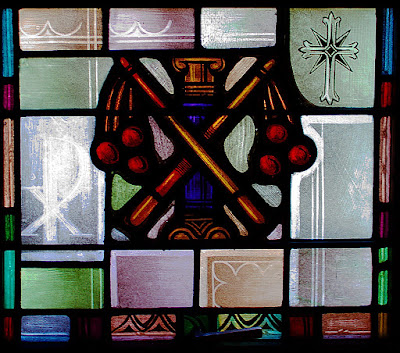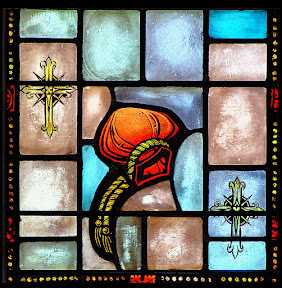 |
“Don’t you know that friendship with the world is hatred toward God? Anyone who chooses to be a friend of the world becomes an enemy of God.” (James 4:4)
One extremely common truism in American Christianity is that “In order for your church to grow the members must be friendly to visitors.” This is at best a half truth, but as we know – a half truth is a whole lie. What I mean by the “friendly church” is the one that seeks to attract members primarily through their friendliness and not through the Word of God alone. This is not how a church should act. This is how a social club acts.
Holy Scripture never says that we must be friendly above all other considerations. In fact, James shows that “friendship with the world is hatred toward God.” Christ says that we must love our neighbor. Now, you might think that to be friendly is loving, but that is not always true. If a fellow Christian is openly sinning then the “friendly” Church wouldn’t dream of confronting the sinner to call him to repentance. That would seem “unfriendly.” However the loving church wouldn’t hesitate to call the sinner to repentance to save him from destroying himself. Yes, there is the risk that the sinner might become offended and break off the friendship, but it is the nature of love to take that risk in order to save the beloved.
It is no wonder that churches are abandoning their doctrines in order to gain members. They have chosen to be friends with the world rather than followers of Christ. Yes, your social club (I mean, “church”) may grow, but when you seek to gain members by being friendly, you don’t get Christ’s disciples, you get social climbers. The tyranny of filling your church with social climbers is that in order for the institution to continue you must continually keep the social butterflies happy because the minute they aren’t happy they fly off to some other social club more willing or able to slavishly indulge their fleshly desires. In this way the social club (church?) turns their members into idols and spends too much time serving their desires and too little time serving Christ. For the sake of “friendship with the world” many churches would rather be social clubs than call sinners to repentance in order to save their souls.
There are many reasons why church members would rather be friendly than loving, but all of them are sinful. It is much easier to be friendly, but that won’t lead anyone to their salvation in Christ. Loving your neighbor will sometimes make him angry at you. That can’t always be avoided. Sinners often enjoy their sin even when they know it is wrong. The loving Christian is sometimes ridiculed for calling the sinner to repent, even when they do it in the kindest possible way.
 |
Another reason why Christians ought not seek to attract members simply by being friendly is that it is dishonest. Even the best Christians in the best churches are still sinners. There will be conflict and hurt feelings and all sorts of nasty sinful things going on wherever people (i.e. sinners) gather together. The church that intends to cater to the “friendly” crowd must cover up these natural occurrences of sinful human behavior. This is because when we admit we are sinners, even to forgive one another, we admit that we aren’t as good as we would like others to think we are. The loving church, however, deals with sin as if they expect people to sin against one another – even the “best” people! Most often this repentance and forgiveness occurs privately between individuals, but sometimes it must be brought out into the open. It is not unloving to call a sinner to repentance just as it is not unloving to forgive the repentant sinner. In fact, to repent and forgive is exactly why Christ established the church.
The consequences of seeking friendship with the world are also shown in James 4. The people to whom James writes have “quarrels” and “fights” among themselves because their desires are at war within themselves and they seek to indulge their sinful desires rather than control them. James says, “You desire and do not have, so you murder. You covet and cannot obtain, so you fight and quarrel. You do not have because you do not ask. You ask and do not receive, because you ask wrongly to spend it on your passions.” (v. 2-4) This is the state of “church growth” churches in American Christianity (and elsewhere). Pastors desire the big churches so that they can indulge themselves in a luxurious lifestyle such as big homes, fancy cars, etc. Church members ought to reject this worldliness, but they, too enjoy the prestige of belonging to a large, fancy church rather than something more modest.
 |
It’s hard to love and forgive sinners. That is why most people would rather be friendly. Yet, the power of forgiveness is greater than anything that can be gained by friendliness. It wasn’t easy for Jesus to forgive sinners either. In order for Jesus to forgive us it took Him, the Son of God, to become incarnate as a man, live a perfectly obedient life and it took His suffering and death on the cross. If you think that is easy then just imagine what it takes to kill the Son of God! Yet, the life and death of Jesus shows the greatness of God’s love and how important forgiveness is to Him. Jesus doesn’t ask us to suffer the punishment for our sins – He did that in our place – so that He could save us from that same punishment. Since Jesus did this hard work for us, can’t we forgive one another? It isn’t easy, but Jesus did the hard work, and when we forgive we show that we, too have been forgiven.
 Click here to listen to the Issues Etc. Blog of the Week segment from May 28, 2010 Click here to listen to the Issues Etc. Blog of the Week segment from May 28, 2010 |


![Jesus prayed, 'My Father, if this [suffering] cannot pass unless I drink it, your will be done.' Matthew 26:42](https://blogger.googleusercontent.com/img/b/R29vZ2xl/AVvXsEi1XzxsoTufIitR4bZUdgRJ_iJk46Keg-Zyv-Mh0zuBK2KsRq87Hl1IBZSkw8yTmUUHXEfG9AFNGlIA_ArRdESGYj2EHlTOjPs_GhUrD-tIe_WQBVwI_mmMFS4gKZkIbMmZ5SKz4dUqlas/s400/117Gethsemane.jpg)













